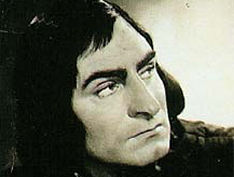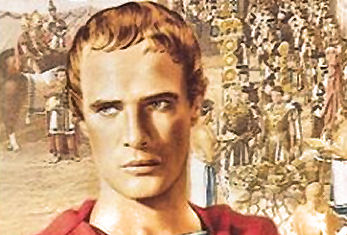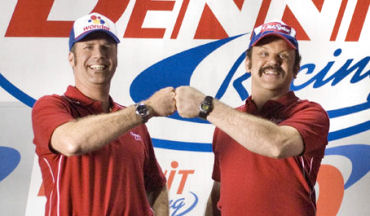“In the New Hollywood, the power has shifted from production to marketing. And why not? When your aim is to make a franchise picture aimed at the whole family, the person you want at the helm is a brand-management expert, not a filmmaker-friendly production chief. Next summer is already jammed with another slew of sequels, including new installments in the Harry Potter, Spider-Man, Pirates of the Caribbean, Shrek, Fantastic Four, Rush Hour, Bourne and Ocean’s Eleven series. These are consumer products, not cinema.” — from Patrick Goldstein‘s 8.1 “Big Picture” column.
Month: August 2006
Shamberg’s Lament
“It’s folly for studios to say we’re only going to make a movie we know how to market,” says World Trade Center producer Michael Shamberg. “The problem with marketing is that it’s based on what’s worked in the past. But audiences want freshness and new ideas, which is all about the future. If a studio is unwilling to be a home for fresh ideas or daring films, they’re ultimately not going to be competitive, because the top talent is going to go somewhere else.” — also in Patrick Goldstein‘s 8.1 “Big Picture” column. To which I would add, audiences don’t seem to really want freshness and new ideas — they want fresh spins on safe ideas. Lame as this sounds, the word “new” tends to put most people a little on edge, except for toddlers, tweeners, teens and 20-somethings.
Wilton-Norwalk-Hollywood
Suddenly my old Fairfield County stomping grounds (Wilton and Norwalk) are part of the Hollywood-now cycle. The Dave Karnes character in World Trade Center (Paramount, 8.9) is shown watching the 9/11 tragedy on a TV set along with two or three coworkers at his job in Wilton, and now House of Sand and Fog director Vadim Perlman is in a legal skirmish over something that happened in a South Norwalk restaurant-bar. It sounds lame to bring this up, but if you lived in this neck of the woods and someone mentioned this to you at a party at someone’s home on Cheesespring Road, you’d smile and nod and go, “Yeah, interesting.”
Kehr slams Olivier
I’ve seen thousands of films with rote, static, or unimaginative camera work, particularly those made between the nascent sound era of the early 30s up until the beginnings of the influence of Italian neorealism in the early ’50s and the hand-held, free-form era of the French nouvelle vague in the early ’60s. Laurence Olivier was, I suppose, not an especially exciting or inspired director, but his three best-known Shakespeare films — Henry V, Hamlet and Richard III — never struck me as being particularly labored or tedious or difficult to sit through.

These three films were mainly about text, acting and visual clarity, and Olivier’s shooting of them never got in the way of these things.
And yet here, out of the blue, is N.Y. Times DVD columnist Dave Kehr all but spitting on Olivier’s grave by saying his work may be slightly worse than that of Ed Wood’s — seriously — in a brief review of the Criterion Collection’s just-issued Olivier Shakespeare box set.
“Olivier might have been a great actor, but he was one of the klutziest directors who ever lived, and seeing these films, with their static arrangements of actors, pointlessly peripatetic camera movements and bizarre framing, makes one appreciate again the deep commitment to cinema represented by the work of Edward D. Wood.
“Hamlet is the best of the bunch, a Freudian interpretation focused on the prince’s sexual disgust with his adulterous mother (all ambiguity has been eliminated) and dressed up with billowing clouds of dry-ice and angular, expressionistic sets that strongly resemble Orson Welles‘s back-lot Macbeth of the same year. Richard III, now with its Technicolor buffed up and its VistaVision aspect ratio restored, still remains a mighty soporific. All three are better heard than seen.”
And Olivier’s Henry V concept of starting the film at London’s Globe theatre and gradually opening it up into big studio sets and outdoor locations….that was chopped liver? It was fairly out there idea for its day, and it’s still moderately engaging by today’s standards. Kehr must have a serious bug up his ass about something when he wrote this.
Where’s Julis Caesar?
And while speaking of Shakespeare on film, what’s with Warner Home Video’s continuing delay in releasing a remastered DVD of Joseph L. Mankiewicz‘s Julius Caesar (’53)? By my standards this superbly acted, exquisitely mounted black-and-white version is one of the best Shakespeare rides around, Hollywood-produced or otherwise. (Dave Kehr might piss on it and wish for more of a Plan 9 From Outer Space approach, but that’s his right as a critic.)

Marlon Brando‘s performance as Marc Antony may not exemplify the grunty, earthy Marlon of legend, but it’s one of his most striking performances. No one has ever delivered the “cry havoc and let slip the dogs of war” speech with more punch or pizzazz. It’s right up there in terms of rage and fire with his Stanley Kowalski in Streetcar…seriously. That moment at the end of Act Two when his newly empowered Antony walks up to a marble bust of the late Ceasar, puts his hand on the base and turns it toward him is one of Brando’s finest non-verbal bits ever… and people are barely aware of it.
James Mason‘s Brutus, Louis Calhern‘s Caesar, Edmond O’Brien ‘s Casca, John Gielgud‘s Cassisus, John Doucette‘s “carpenter, citizen of Rome”, John Hoyt‘s Decius Brutus, Greer Garson‘s Calpurnia….an awesome cast delivering one knockout moment after another. Not to mention Miklos Rosza‘s haunting score and Joseph Ruttenberg‘s luscious cinematography.
I thought WHV would issue this film for sure after Brando’s death in ’04, but nope. There’s no question this film is an essential, so whassup, Ned Price?
“Driver” mashup
Another trailer mashup, this time selling the idea of a warm and uplifting Taxi Driver. Very well edited by Steven Santos…but I think we all got the idea with that Shining trailer that went around a couple of years ago.
Gibson blogger riffs
The L.A. Times‘ Deborah Netburn with a recent sum-up of Gibson blogger riffs.
Howell on Gibson
This Gibson-meltdown story from the Toronto Star‘s Peter Howell reads like something that should have run Monday instead of today….sorry, but news cycles are running almost hourly these days. That said, there’s a decent pull-quote from yours truly: “As Woody Allen might put it, Mel is toast with those of the Hebrew persuasion.” But maybe there’s a chance with Mel having asked to meet and sit down with Jewish leaders, etc. Doubtful but maybe.
Talladega rumble
There’s a kind of nascent rumble on Talledega Nights (Columbia, 8.4), which has its all-media showing in Westwood this evening: Will Ferrell‘s dumb race-car driver schtick is whatever it is (funny, very funny, amusing, vaguely exasperating), but the supporting stand-out seems to be Sascha Baron Cohen, whose comedic Borat (subtitled “Cultural Learnings of America for Make Benefit Glorious Nation of Kazakhstan”) played in Cannes last May and is opening on 11.3 via 20th Century Fox.

“On many levels, Talladega Nights is reminiscent of Anchorman,” says Screen Daily‘s Tim Grierson. “Both films were directed by Adam McKay, both were written by McKay and Ferrell, and both feature Ferrell playing a pompous big shot cut down to size who ultimately finds redemption. If those comparisons aren’t enough, each project lovingly satirises its milieu while relying on over-the-top characterizations and hit-and-miss improvised humor for its laughs.”
And yet there are “many good comic moments early on,” he says, which is good because they “help to compensate for a sluggish second half.”
And it’s Baron Cohen, playing an effete French snob, “who gives the film acceleration,” Grierson writes. “As a testament to Baron Cohen’s importance to Talladega Nights, the film’s second-half dip can be partly blamed on his disappearance from the plot as Ricky withdraws from the limelight to regain his confidence before the big third-act race.”
Gibson’s new statement
Hollywood Reporter columnist Anne Thompson and RiskyBiz blogger once again runs a Mel Gibson statement ahead of everyone else. Gibson has stopped shot of agreeing to be lashed by rabbis in penance for his anti-Semitic remarks last weekend, as I half-seriously suggested he do yesterday, but he is saying, humbly, that he wants to sit down with Jewish community leaders and get his head straight.
“I’m not just asking for forgiveness,” his new statement reads. “I would like to take it one step further, and meet with leaders in the Jewish community, with whom I can have a one-on-one discussion to discern the appropriate path for healing.” Earlier in the statement he says, “Please know from my heart that I am not an anti-Semite. I am not a bigot. Hatred of any kind goes against my faith.”
“I have begun an ongoing program of recovery and what I am now realizing is that I cannot do it alone. I am in the process of understanding where those vicious words came from during that drunken display, and I am asking the Jewish community, whom I have personally offended, to help me on my journey through recovery. Again, I am reaching out to the Jewish community for its help. I know there will be many in that community who will want nothing to do with me, and that would be understandable. But I pray that that door is not forever closed.
“This is not about a film. Nor is it about artistic license. This is about real life and recognizing the consequences hurtful words can have. It’s about existing in harmony in a world that seems to have gone mad.” In Malibu, he surely means, as well as in northern Israel, southern Lebanon, Iraq and other places of agony in the Middle East.
Lowry on “WTC”
“World Trade Center yields lovely and touching moments but proves a slow-going, arduous movie experience, if more uplifting than Universal’s earlier test of that historic day’s box office potential, United 93 ,” says Variety‘s Brian Lowryin his 7.31 review .
“Stone’s film bears some thematic resemblance to Alive , Frank Marshall‘s 1993 chronicle of a plane crash in the Andes. Both offer a tribute to human endurance under unimaginable conditions, but watching young guys huddle together trying not to freeze to death or two cops pinned under tons of debris isn’t exactly a cinematic thrill ride. Long stretches are shot in tight close-up on John McLoughlin (Nicolas Cage ) and more personable Will Jimeno (Michael Pena) lying immersed in gray muck, seeking to stay alive.
“While both actors deliver strong performances, they are confined by the narrative figuratively as well as literally, spurring a degree of impatience for the climax. Yet the film ultimately present[s] an inspiring vision of can-do American spirit amid adversity, exemplified by [Connecticut rescuer Dave] Karnes and the rescue workers (played by, among others, Stephen Dorff and Frank Whaley) risking life and limb to assist complete strangers.”
Stallone Memories
In his revivings of the Rambo and Rocky franchises, Sylvester Stallone is taking a last desperate leap at marginal fame, semi-relevance and a revenue surge. It’s a tough place to be in but we all have to keep knocking.
I wish Stallone had kept trying to play Copland-type character roles, but I guess he wasn’t offered much in this vein after Copland came out, probably because people felt he wasn’t that terrific in it.
I got to know Stallone slightly as a result of working for a couple of hotshot publicists (Bobby Zarem, Dick Delson) who represented Sly during the big-dick Rambo II era in ’85 and ’86.
I then interviewed him in May 1992 during the Cliffhanger shoot in Cortina, Italy, for a piece that eventually ran in the New York Times. So I can say with a certain authority that when he’s in the right mood, Stallone is a likable, very funny and witty guy. He has a perverse sense of humor. But this never really came out in his films.
Every now and then Stallone wasn’t in the mood to be likable and witty, and then it was tippy–toe time. Sometimes his eyes would resemble a dead shark’s.
I was leaving his Pacific Palisades home once and making light chatter as a kind of exit strategy while Delson and Zarem were doing something in the other room. I noticed a familiar painting on the wall near the front door and said to him, “Francis Bacon…excellent taste!”
A friendly reply might have been “yeah, good old Francis” or “you’re a fan too, huh?” But he was in one of his moods or something. Stallone looked at me like he was Louis Lepke and I was a guy behind on my payments, and said, “You got it.”
He meant “yeah, it’s Bacon” and not “yeah, I have excellent taste”, but it was still kind of a flatline thing to say.
